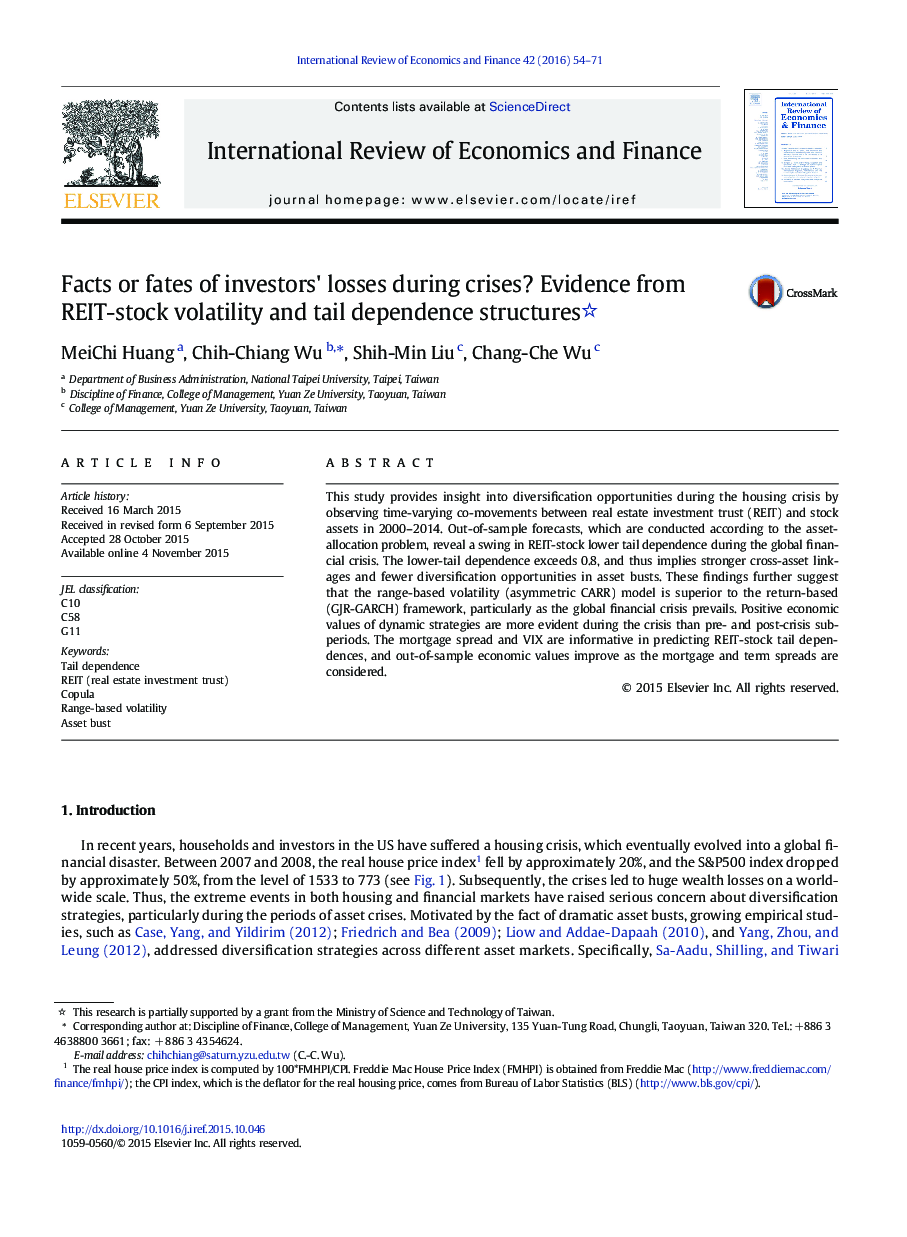| Article ID | Journal | Published Year | Pages | File Type |
|---|---|---|---|---|
| 5083136 | International Review of Economics & Finance | 2016 | 18 Pages |
Abstract
This study provides insight into diversification opportunities during the housing crisis by observing time-varying co-movements between real estate investment trust (REIT) and stock assets in 2000-2014. Out-of-sample forecasts, which are conducted according to the asset-allocation problem, reveal a swing in REIT-stock lower tail dependence during the global financial crisis. The lower-tail dependence exceeds 0.8, and thus implies stronger cross-asset linkages and fewer diversification opportunities in asset busts. These findings further suggest that the range-based volatility (asymmetric CARR) model is superior to the return-based (GJR-GARCH) framework, particularly as the global financial crisis prevails. Positive economic values of dynamic strategies are more evident during the crisis than pre- and post-crisis subperiods. The mortgage spread and VIX are informative in predicting REIT-stock tail dependences, and out-of-sample economic values improve as the mortgage and term spreads are considered.
Keywords
Related Topics
Social Sciences and Humanities
Economics, Econometrics and Finance
Economics and Econometrics
Authors
MeiChi Huang, Chih-Chiang Wu, Shih-Min Liu, Chang-Che Wu,
